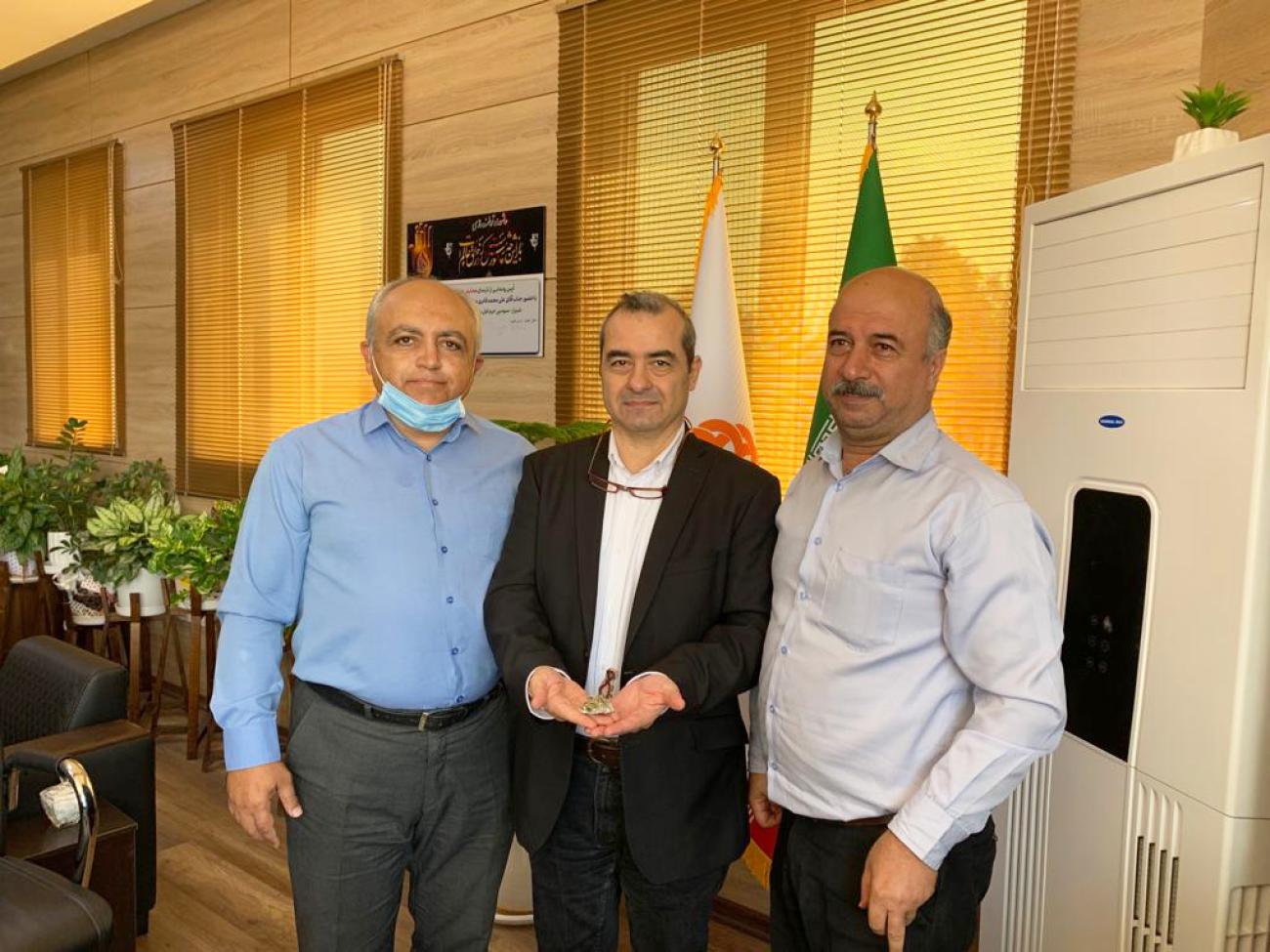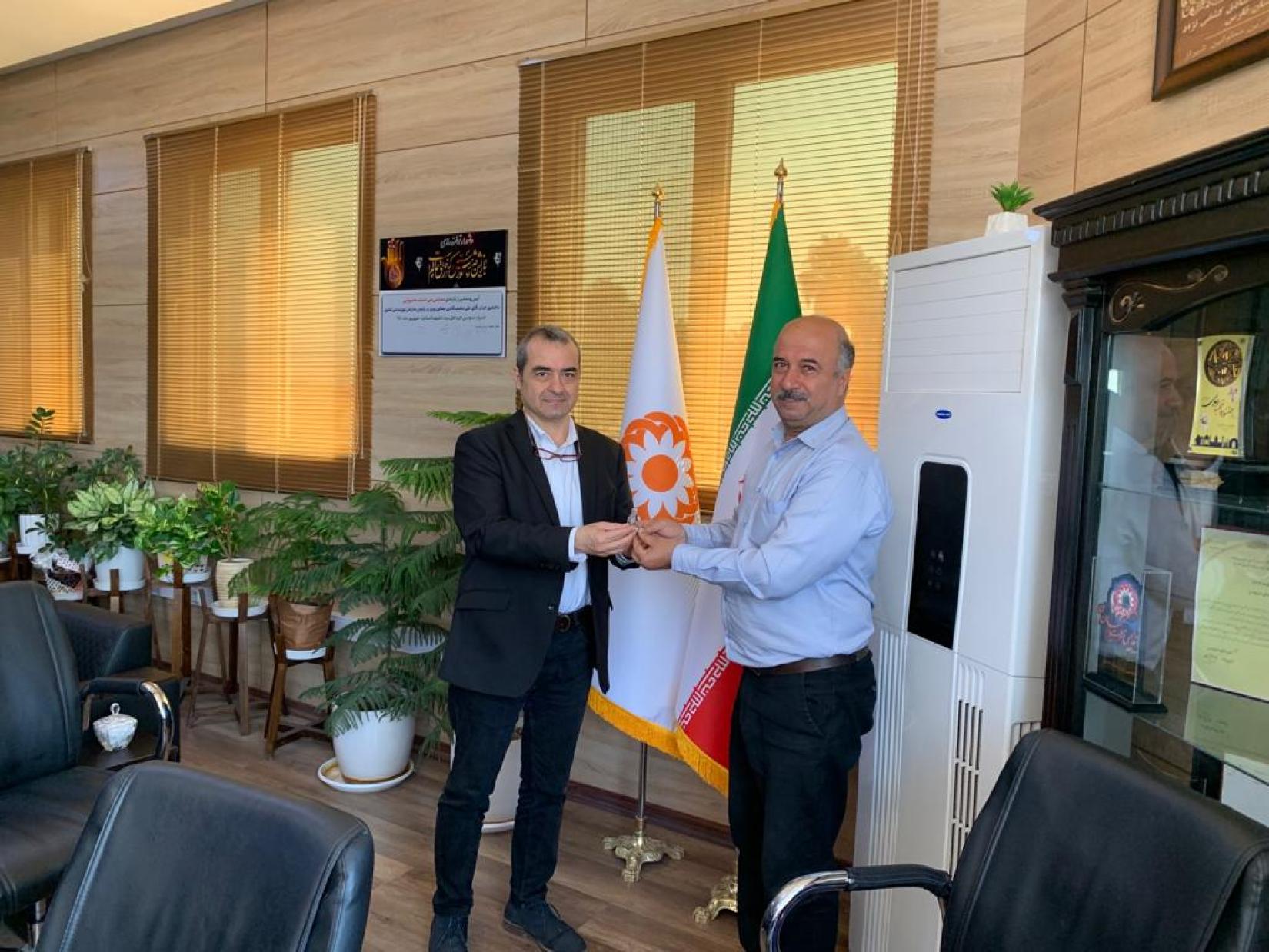Breaking Barriers:A Social Worker in the Fight Against HIV Stigma and Discrimination

A Social Worker in the Fight Against HIV Stigma and Discrimination
For Mojtaba Dashte Beshi, a dedicated retired social worker from Shiraz, the journey of helping people living with HIV/AIDS began right in his own backyard while he was growing up in one of Shiraz's drug-ridden neighbourhoods. "Many of my childhood friends fell into drug use, and some died from overdoses," he recalls. "That's why, instead of wishing to become pilot or firefighter as a young kid, I dreamed that one day I become social worker to help drug users to recover."
In Shiraz, the first clinic to provide services for drug users was opened on 1988, where Mojtaba encountered his first HIV-positive patient. "In those early days, fear and misinformation about HIV/AIDS were widespread, and we knew so little about mode of transmission," Mojtaba explains. He recalls that back then people were afraid to even shake hands with or to sit in the same room with people living with HIV. “At that time in Shiraz, many doctors, especially dentists, were not willing to accept them" he says.
Families also didn’t know how to properly deal with people living with HIV, and Mojtaba, a social worker, has encountered many experiences in this regard. He explains that many people took extreme measures when they found their HIV positive status, some committed suicide for the fear of their families, or migrated to another city anonymously to hide the issue from their families.
Misinformation and lack of sufficient and accurate knowledge fuels stigma and discrimination against people living with HIV in society. The fear of being stigmatised can have serious consequences and prevent people living with HIV/AIDS to receiving vital HIV treatments, as studies show. As an example, according to the UNAIDS country progress report in 2020, biobehavioural surveillance among people who inject drugs showed that nearly half of the respondents had avoided seeking health care, HIV testing, HIV medical care, and/or HIV treatment because of perceived stigma and discrimination.
For social workers like Mojtaba, social work is more than just a job; it is a mission to combat the myths and mis information around HIV/AIDS and to help people living with HIV be treated fairly and with dignity. Raising awareness and education are the key solutions, which is why Mojtaba, and his colleagues held many educational workshops in schools, universities, and factories over the past years and brought patients to speak about their experiences.
When asked about a memorable moment from his 30 years of working in this field, he recalls a training seminar in Shiraz that he organized. He came up with a creative idea to break the cycle of stigma and discrimination by inviting five People living with HIV, who had been anonymously attending the session as specialists for three days, disclose their status on the last day. "Many participants were surprised, some actually cried, realizing how wrong it is to avoid people living with HIV and had discriminatory behavior," he says.
Although stigma and discrimination around HIV/AIDS is still a reality today, the situation in Iran has improved considerably. “After many years of working in this field, I have clearly witnessed that over the past few years, People Living with HIV have increasingly put their trust in health care centres and actively engaged in their care processes, subscribing to Positive Clubs” said Mojtaba.

Photos by SWO of Fars Province
Positive Clubs were one of the successful programmes in positive health, dignity and prevention among people living with HIV and their families conducted through close collaboration of UNAIDS, the centre of communicable disease control of the Ministry of Health and Medical Education; Medical Universities; the Global Fund to fight AIDS, Tuberculosis and Malaria; United Nation Development Programme; State Welfare Organization and Civil Society Organizations.
The UNAIDS country office, together with national partners of AIDS control programme, has made efforts to eliminate HIV related stigma and discrimination in the country.
In 2010 the first people living with HIV Stigma Index study conducted. A comparison between the first study and the second study in 2021, using updated methodology, reveals positive changes. Self-stigma among PLHIV decreased from 80% to 40%, the percentage of people with HIV not seeking medical help decreased from 80% to 19%, and overall stigma and discrimination decreased from 71% to 47%.
Data from UNAIDS Global AIDS Update 2023 underscores the impact of such efforts globally. Currently 29.8 million of the 39 million people living with HIV worldwide are receiving life-saving treatment. This represents a significant milestone in the fight against HIV/AIDS, a testament to the dedication and resilience of healthcare workers and social workers worldwide.
Yet, the battle is far from over. In 2022, AIDS claimed a life every minute. Around 9.2 million people living with HIV were not receiving treatment, and another 2.1 million, while on treatment, were not virally suppressed.
Social workers retire, but their legacy remains. Now retired, Mojtaba remains active in helping patients and pursues hobbies like stone carving, nature photography, and bird watching. "Like stones in the rough, addicts, or people living with HIV, have beauty and value inside just waiting to be realized," Mojtaba tells us when we ask how social work relates to masonry. "With patience and care, they can transform into precious gems."
His story serves as an inspiration that we all have the power to make society more embracing of the wounded, marginalized, and vulnerable.



